Humane Society International
Region: Europe
Humane Society International / Italy
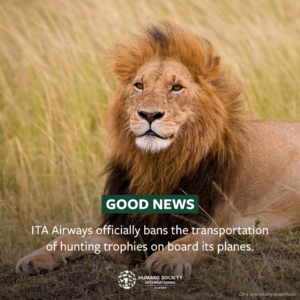
ROME—The leading Italian airline, ITA Airways, proudly announces its support of the campaign #NotInMyWorld of the global animal protection charity Humane Society International/Europe. The airline has adopted a new corporate policy that prohibits the transportation of hunting trophies on all company flights, both as cargo and as passenger baggage. This stands as a significant testament to the Company’s commitment to wildlife conservation, as well as a substantial contribution to ending trophy hunting and fostering business practices that acknowledge the global community’s responsibility for biodiversity protection.
Hundreds of thousands of animals globally, including endangered and threatened species, are killed by trophy hunters for amusement and boasting, contributing to the decline of wild populations, conservation challenges, and inhumane practices. Unlike subsistence hunting, the primary motivation for those engaged in this activity is to kill animals for competition and entertainment, targeting rare or highly sought-after animals for their physical characteristics (thick manes, long tusks, overall size, etc.) and turning them into trophies for display to showcase success in hunting. Considering that a significant number of trophy hunters who book overseas hunting trips intend to transport their macabre souvenirs back home, the transportation sector plays a key role in facilitating this ethically questionable and harmful industry.
On a national level, ITA Airways’ commitment holds particular significance since Italy ranks among the primary importers of hunting trophies in Europe. Between 2014 and 2021, 442 hunting trophies from mammals protected under CITES (Convention on International Trade in Endangered Species) were imported, including hippos, rhinos, elephants, and lions. These data reveal the country’s active involvement in the trophy hunting industry, despite a survey indicating that 86% of Italians oppose this practice, with 74% supporting a legislative ban on trophy imports.
By joining the campaign, ITA Airways has taken several measures including:
- Addition of hunting trophies to the list of prohibited items: ITA Airways has expanded the list of prohibited items for transportation in both passenger baggage and cargo, expressly including hunting trophies. This clear prohibition ensures that such items are not accepted on ITA Airways flights.
- Online publication of the policy: The hunting trophy policy has been published on the ITA Airways’ official website, providing transparency and accessibility to the new directives. This step reflects the Company’s commitment to open and responsible communication.
- Update of operational manuals for cargo and ground procedures: ITA Airways has reviewed and updated its operations manuals, ensuring that the new provisions regarding hunting trophies are fully integrated into cargo procedures and ground operations.
- Dissemination of the policy to staff, hubs, and suppliers: The new policy has been disseminated at all levels of the Company, including flight and ground staff, as well as suppliers and hubs where the airline operates. This dissemination ensures full understanding and adherence to the new provisions regarding hunting trophies.
Giovanna Di Vito, ITA Airways’ chief program office, ESG & Customer Operations, emphasizes “Our firm support for Humane Society International/Europe’s campaign to stop the import of hunting trophies into Italy and Europe reflects ITA Airways’ ongoing commitment to the planet, our country, and communities. Our Company’s new policy, which formalizes a ban on the carriage of hunting trophies on its flights, is a concrete action, our contribution to the protection of wildlife and the promotion of that protection. Indeed, we believe that companies have a key role in supporting and spreading ethical practices that represent real progress toward a more responsible and sustainable future.”
Martina Pluda, director of Humane Society International/Europe in Italy, states: “ITA Airways’ support to our campaign and their new policy represent a highly significant contribution to the goal of ending cruel trophy hunting. In fact, the corporate sector also plays a huge role in the collective action necessary to protect threatened wildlife globally. With HSI/Europe’s #NotInMyWorld campaign, we continue to strengthen our commitment to the preservation of endangered animal species and flora and for the introduction of bans on import, export and re-export of hunting trophies from protected animals in Italy and Europe.”
In addition to ITA Airways, an increasing number of airlines, cargo operators, and transport companies worldwide have adopted corporate policies against the transportation of hunting trophies. Please visit hsi.org/trophy-free-transport for an overview of all transport companies.
Visit the new ITA Airways corporate policy
END
Media contact:
- HSI/Europe: Eva-Maria Heinen, communications & PR manager for HSI in Italy and Germany: emheinen@hsi.org; 3338608589
- ITA Airways: Pietro Caldaroni, Head of Communication and Institutional relations; media@ita-airways.com
Humane Society International / Europe
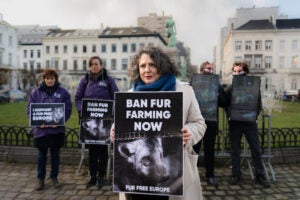
BRUSSELS―With just a week to go before the European Commission is due to deliver its formal response to the European Citizens’ Initiative petition for an EU-wide fur farming ban, animal protection organizations, members of the Fur Free Alliance and MEPs gathered opposite the European Parliament to highlight the suffering of animals exploited for fur fashion. More than 1.5 million EU citizens signed the ECI petition for a Fur Free Europe which could end the suffering of 10 million foxes, raccoon dogs, mink and chinchilla on EU fur farms each year.
Campaigners from Humane Society International/Europe, Oikeutta eläimille and Otwarte Klatki, Gaia and Tu Abrigo Su Vida wore body screens broadcasting footage recently obtained from undercover investigations on fur farms in six Member States, namely Finland, Poland, Denmark, Spain, Latvia and Lithuania. The disturbing footage exposes the harsh realities of intensively confining wild species on fur factory farms, and shows mink and foxes in small, wire cages, enduring horrifying injuries, maggot infested wounds and painful infections.
Dr Joanna Swabe, senior director of public affairs for Humane Society International/Europe, said: “This new footage showing mink, foxes and raccoon dogs suffering from the most horrific injuries and displaying stereotypical behaviours, confirms just how poor animal welfare standards are on Europe’s remaining fur farms. Despite fur industry claims of improved welfare on fur farms, the truth is there is precious little evidence that anything has really changed since the fur farm investigations of the 1980s. Animal suffering is endemic within fur farming and the only ethical solution, which also satisfies the demands of a majority of EU citizens, is to ban fur farming altogether. The European Commission must now take action to deliver a legislative proposal to prohibit fur farming at an EU level.”
Kristo Muurimaa, campaigns director at Finnish animal group Oikeutta eläimille, added: “Over the past decade, I have visited dozens of fur farms in Finland and elsewhere in the world, and the one common factor is the appalling welfare conditions under which the animals are standardly kept. It is extremely common to see abnormal behaviours, evidence of fighting, untreated injuries and even instances of cannibalism. I’ve seen these poor conditions on fur farms certified as complying with the industry’s voluntary animal welfare standards, demonstrating that this certification is not worth the paper it is written on. It is quite simply impossible to safeguard or guarantee the welfare of animals intensively bred for fur.”
Karolina Pelka, investigations specialist at Otwarte Klatki in Poland, said: “Given the conditions under which animals on fur farms are intensively kept, bred and killed, it is impossible to meet their complex welfare needs. Let it be clear. Any attempt to develop EU animal welfare standards for fur animals, which is based on the existing caged housing system, cannot deliver meaningful welfare improvements for these animals. Moreover, it would be an insult to the more than 1.5 million EU citizens who signed the ECI calling for a Fur Free Europe. They will be satisfied by nothing less than an EU-wide ban on fur farming.”
“In this day and age, it is reprehensible that we are still keeping and killing animals solely for their fur. This is a cruel and unnecessary practice, which—as we have seen in recent years with outbreaks of the SARS-CoV-2 and HPAI [highly pathogenic avian influenza] viruses on fur farms—also poses a serious threat to public health. The fur industry is already in serious decline throughout Europe, consumers, retailers and fashion designers have increasingly been turning their backs on fur and fur production has been prohibited in many Member States. So let us finally end this cruel business by introducing an EU-wide ban on fur farming. The industry only exists to supply the frivolous fashion industry with luxury products that no-one actually needs. It is high time that the Commission listens to EU citizens and delivers an EU ban on fur farming,” says Tilly Metz MEP (Greens/EFA) and President of the European Parliament’s Intergroup on the Welfare and Conservation of Animals.
Find pictures of the event and of MEPs supporting a ban on fur farming.
END
Media contact: Cassie Bodin-Duval, international media relations coordinator, cbodinduval@hsi.org
The distiller joins the movement to eliminate caged confinement in Europe
Humane Society International / Europe
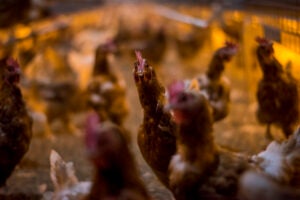
BRUSSELS—De Kuyper Royal Distillers has become one of the first distillers globally to announce a commitment for the responsible sourcing of eggs. As early as 2011, the Dutch manufacturer of distilled spirits and liqueurs, which uses approximately 19 million eggs annually, has embarked on a mission to source exclusively cage-free eggs. By 2030, the company aims to transition to sourcing free-range eggs throughout its entire supply chain. De Kuyper’s new animal welfare policy was developed in cooperation with Humane Society International/Europe.
De Kuyper’s commitment to source eggs exclusively from cage-free production systems, along with its aspirations to transition to free-range production systems, sends a strong signal to both policymakers and producers by demonstrating a growing appetite and increasing market demand for responsible eggs among corporate actors. With this commitment, De Kuyper Royal Distillers has joined the growing number of global consumer goods companies who have pledged to stop using eggs from caged hens, including PepsiCo, Unilever, Mondelez and Nestlé.
In 2021, following the success of the End the Cage Age European Citizens Initiative which was supported by 1.4 million EU citizens, the European Commission announced that they will deliver a proposal to end caged confinement for farmed animals. While it is uncertain when and if the Commission will deliver this proposal in the near term, the fact that increasingly more businesses are taking corporate responsibility with regard to how the eggs they use are produced, is a clear proof for support for higher animal welfare standards in Europe.
Mark de Witte, CEO at De Kuyper Royal Distillers, said: “As a company with more than 325 years of history, De Kuyper Royal Distillers has always been able to adapt to changing times and changing customer and consumer demands, and this is no different when it comes to animal welfare. As a socially responsible company, we are proud to present our first animal welfare policy and take steps towards higher animal welfare standards to become future-proof.”
De Kuyper Royal Distillers is a global market-leading producer of liqueurs and creates the traditional Dutch liqueur Advocaat. The company is one of the largest producers of egg liqueur globally and distills it for its own brands, as well as for other leading retailers in Europe.
Elise Allart, corporate engagement director for Humane Society International/Europe, said: “De Kuyper Royal Distillers has taken an important step by including animal welfare in its responsible sourcing strategy. The company sources exclusively cage-free eggs not only for its liqueurs, but also for the products served in the canteens to its employees. The policy also reaffirms the long-lasting commitment of De Kuyper to not test its products on animals, or to implement protecting practices that involve any form of cruelty to animals, for instance in their marketing activities.”
The majority of hens in the global egg industry are confined to cramped battery cages, where they spend their entire life on a surface not bigger than an A4 sheet of paper. In response to consumer demands and serious concerns about animal welfare, barren battery cages were eventually phased out in the EU by 2012. However, in 2022 43.2% of hens in the European Union are still confined to enriched cages. Cage-free and free-range systems, on the other hand, allow birds to perform their natural behaviours, such as laying eggs in nests, walking, perching, dust bathing or wing-flapping.
ENDS
Media contact:
- Humane Society International/Europe: Cassie Bodin-Duval, international media relations coordinator, cbodinduval@hsi.org
- De Kuyper Royal Distillers: Thomas van Gaal, sustainability manager, tvgaal@dekuyper.nl
Proposed law would extend lions' protection ban to safeguard other protected species
Humane Society International / Europe
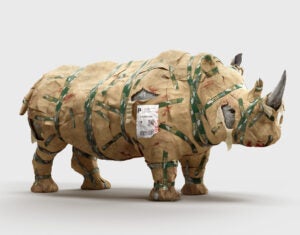
PARIS—A cross-party bill proposal to ban the import of hunting trophies of protected species into France by Ecologist MP Sandra Regol with the support of Renaissance MP Corinne Vignon, Chair of the Assembly’s Study Group on the Condition and Welfare of Animals. According to an poll commissioned by Humane Society International/Europe, this proposed law is supported by the vast majority of French citizens, with 91% declaring themselves in favour of a ban on the import of trophies of endangered species.
France, which took measures to safeguard lions from trophy hunting in the aftermath of Cecil the lion’s death in 2015, currently grants this protection exclusively to lions. Many other protected species, including elephants, leopards and cheetahs, continue to be hunted, mounted and imported as trophies in France.
The introduction of a new legislative proposal raises hope for these animals, as the Bill would amend the Environment Code to expand the hunting trophy import ban, offering protection to a broader range of protected and endangered species. The proposed law would also prohibit the direct or indirect promotion of trophy-hunting an animal covered by the law.
Capucine Meyer, HSI/Europe consultant for the campaign on trophy hunting in France said:
“It is time for the protection status granted to lions to be extended to species that are just as threatened, if not more so, such as the polar bear, the leopard and the African elephant. France must become a leader in the protection of species and biodiversity by extending such prohibitions to other species targeted by trophy hunters. HSI/Europe would also like to congratulate Deputy Mrs. Regol and all the signatory MPs for their commitment to respecting animal life and protecting biodiversity.”
The new law proposal was co-signed by 26 MPs from the Ecologiste-NUPES, Renaissance and Démocrate (MoDem and Indépendants) groups, including Jean-Marc Zulesi, Chairman of the Sustainable Development and Town and Country Planning Committee, and Elodie Jacquier-Laforge, Vice-President of the National Assembly. It follows success in June last year, when Sandra Regol, with the support of Minister Gabriel Attal and Group Chairwoman Aurore Bergé, succeeded in getting an amendment passed in both the National Assembly and the Senate to give customs officers more resources to combat the import of illegal hunting trophies. This unprecedented vote highlighted the general support of parliamentarians and the government in the fight against the import of hunting trophies of protected species.
Milton Federici, Convergence Animaux Politique’s Head of Public Affairs, explains: “We have been working with HSI/Europe on this campaign for over a year, seeking support among parliamentarians. The tabling of this text is both the culmination of this work and the start of a democratic debate that we are calling for in the Assembly and Senate on the import of hunting trophies of endangered species. We are extremely grateful to Sandra Regol and all the other MPs who support this text for creating the conditions for this debate.”
Background Facts:
- Trophy hunting poses a grave threat to biodiversity and ecosystem stability. It involves the killing of wild animals for the purpose of exhibiting their heads, skins or other body parts as trophies. This cruel and detrimental activity exacerbates the decline of species, endangering their survival and disrupting ecosystems.
- Trophy hunting is not just rejected by an overwhelming majority of French and European citizens: in South Africa, for example, which is Africa’s main exporter of wildlife trophies, two out of three people questioned said they were against trophy hunting. [2] .
[1] Ifop survey for HSI/Europe conducted by online self-administered questionnaire from 13 to 14 June 2023 among a sample of 1,003 people, representative of the French population aged 18 and over.
[2] HSI/Europe (2022). “Report: Hunting – Ipsos Khayabus W1 2022” conducted by Ipsos South Africa
ENDS
Media contact: Cassie Bodin-Duval, international media relations coordinator, cbodinduval@hsi.org
Some major fast-food companies address chicken welfare, with many to continue efforts, according to report
Humane Society International / Europe
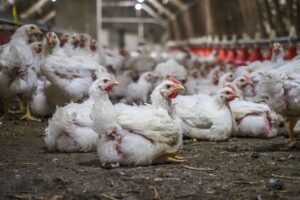
BRUSSELS—The first-ever evaluation of chicken welfare among 16 fast-food brands in Poland and Romania reveals that the fast-food industry in Eastern Europe is taking its first steps towards increasing the welfare of chickens used for meat. The 2023 Pecking Order reports for Poland and Romania, which were conducted by Humane Society International/Europe, evaluate prominent fast-food companies such as McDonald’s, Burger King and Subway as well as local chains including Romanian 5 to go and Polish Zahir Kebab concerning their time-bound commitments and performance-reporting on broiler chicken welfare in their supply chains. The assessment centers on indicators such as the living space allocated for each chicken, the chicken breeds employed, the use of cages, the provision of enrichments for natural behavior display, and the methods used for their slaughter.
Poland and Romania are among the most important players in Europe’s broiler chicken industry, supplying both domestic and international markets with chicken meat products. In 2021, Poland was the largest EU producer with about 1.12 billion chickens raised and killed, whereas Romania ranked 8th with 271.7 million chickens.
The assessments included 12 fast-food brands for each country. In both Poland and Romania, it covered Burger King, Domino’s, IKEA, KFC, McDonald’s, Pizza Hut, Starbucks and Subway. In Poland, Pasibus, Salad Story, Vapiano and Zehir Kebab were also reviewed, while in Romania the evaluation included 5 to go, PAUL, Salad Box and Spartan. The Pecking Order report’s overall results highlight that while some companies have taken steps and published their commitments to improve broiler chicken welfare, most have yet to start. Many international fast-food chains rely on their parent companies’ chicken welfare policies without declaring them on their local websites, while national fast-food chains have not introduced these welfare policies at all.
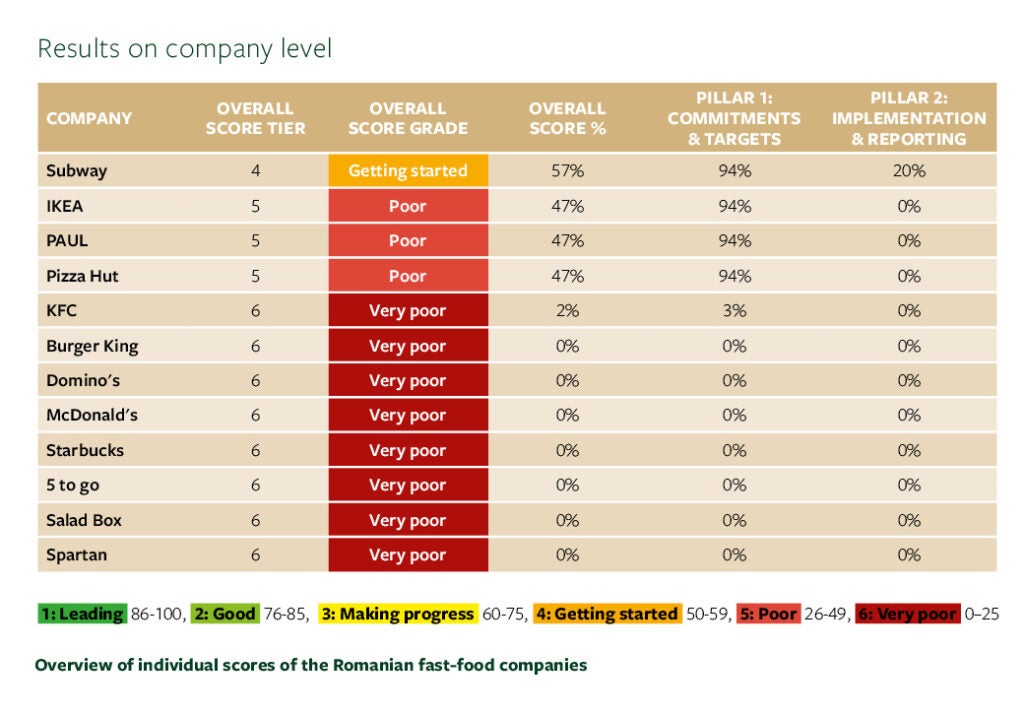
In both countries, Subway emerges as the leader among the assessed companies with an overall score of 57% on managing and reporting on broiler chicken welfare. In Poland, Subway is followed by IKEA with 50% and Pizza Hut and Vapiano with 47%. McDonald’s and KFC received low scores of 11% and 2%, respectively, while Burger King, Domino’s, Pasibus, Salad Story, Starbucks and Zahir Kebab scored 0%. In Romania, Subway is followed by IKEA, PAUL and Pizza Hut with a score of 47%. On the flip side, KFC, 5 to go, Burger King, Domino’s, McDonald’s, Salad Box, Spartan and Starbucks received very low scores, between 2% and 0%. In Poland, as well as in Romania, Subway is the only chain that received a non-zero score in performance reporting.
Elise Allart, corporate engagement director for HSI/Europe, says: “The vast number of animal lives impacted by the chicken industry demands that it actively champion higher standards of animal welfare. The Pecking Order doesn’t just assess the status quo; it provides actionable solutions. It’s a powerful tool for fast-food companies seeking to enhance chicken welfare and adhere to the European Chicken Commitment. We invite collaboration and prompt action to improve animal welfare in supply chains, making businesses future-proof in line with increasing consumer demands and forthcoming legislation.”
Find photos and infographics in English, Polish and Romanian.
Facts on The Pecking Order
- The 2023 edition of The Pecking Order is a project by World Animal Protection, together with Humane Society International, the Albert Schweitzer Stiftung, L214 and Essere Animali. A total of 69 companies were assessed covering the markets of France, Germany, Italy, Poland, Romania, and Spain.
- The Pecking Order is an initiative dedicated to assessing broiler chicken welfare in the fast-food industry, by evaluating the companies’ commitment to address chicken welfare throughout their supply chains, the measures they take and how they implement the requirements recommended in the European Chicken Commitment (ECC). The Pecking Order has been assessing fast-food brands since 2019. In 2023, six European markets were assessed, and Poland and Romania were included for the first time. The report offers a general presentation of the broiler chicken welfare situation in the Polish and Romanian fast-food industry and describes opportunities for improvement.
- Chicken welfare management across countries varies. The German and French fast-food companies have the highest average overall scores of the assessed countries, demonstrating more commitments and implementation. Polish and Romanian chains have the lowest scores, indicating that there is substantial progress needed within the countries’ fast-food industries concerning chicken welfare.
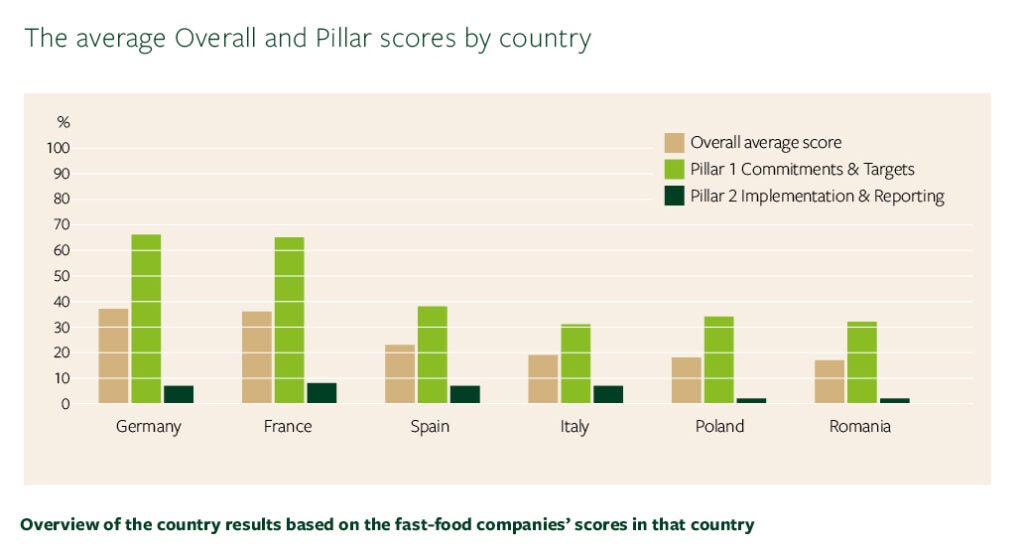
- Some fast-food chains are doing better than others in publishing their commitments and targets for chicken welfare. For Poland, IKEA stands out with a score of 100%, demonstrating a firm commitment to chicken welfare. The data also reveals that Subway, Pizza Hut and Vapiano have acknowledged the need to improve chicken welfare, each scoring a high 94%, positioning them as leaders in this aspect. On the opposite end of the spectrum, McDonald’s, KFC, Burger King, Domino’s, Starbucks, Pasibus, Salad Story and Zahir Kebab exhibit a lack of commitment with scores of 21% (McDonald’s), 3% (KFC) and 0% (the rest). Regarding commitments and targets in Romania, Subway, IKEA, PAUL and Pizza Hut have conceded the need for higher welfare standards for broiler chicken. Each of the companies gathers a percentage of 94%. On the other hand KFC, Burger King, Domino’s, McDonald’s, Starbucks, 5 to go, Salad Box and Spartan show a lack of commitment, with scores between 3% (KFC) and 0% (other companies).
- In respect to performance and progress reporting, in both Poland and Romania, Subway is the only chain that received a non-zero score. All other assessed companies received a score of 0%. These companies did not publish any information on their websites. This indicates a significant lack of action and transparency. Without progress reporting, the public is left to assume that these companies are doing nothing to eliminate the cruelty happening to chickens in the supply chain.
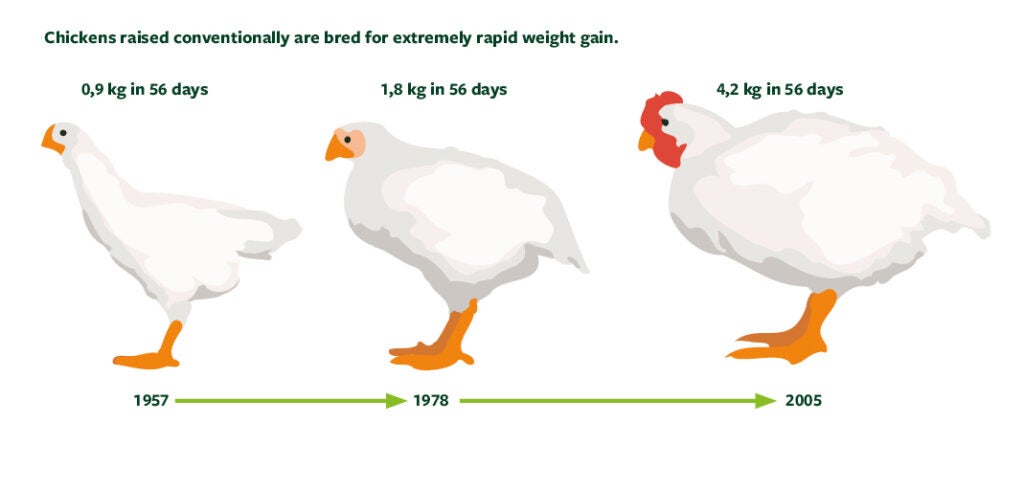
ENDS
Media contact: Cassie Bodin-Duval, international media relations coordinator, cbodinduval@hsi.org
Humane Society International / Europe
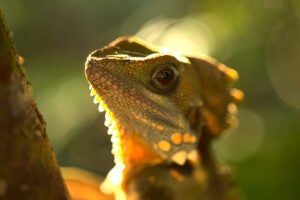
BRUSSELS—A year after the publication of the Revised Action Plan against Wildlife Trafficking, representatives from Member States, the European Commission, the European Parliament and civil society gathered in Brussels to discuss the implementation of the Action Plan and solutions to end illegal wildlife trade. The event was co-organised by Eurogroup for Animals, Animal Advocacy and Protection, International Fund for Animal Welfare, Humane Society International and Pro Wildlife.
Wildlife trafficking is one of the largest international criminal activities. It contributes significantly to biodiversity loss, increases the risk of zoonotic diseases and has negative socio-economic impacts, particularly in countries where animals and wildlife products are sourced.
The EU is a hub for wildlife trafficking and therefore has a crucial role to play. The revised EU Action Plan against Wildlife Trafficking, published in 2022, provides improvements compared to the previous Action Plan and foresees ambitious actions to tackle the issue. Our conference, marking the first year of the release of the revised Action Plan, was opened by a video message from Virginijus Sinkevičius, European Commissioner for Environment, Oceans and Fisheries, who highlighted the role of illegal trafficking in loss of biodiversity and undermining peace and security, followed by a message from César Luena MEP (Socialists and Democrats), who stressed that the success of the Action Plan depends on dedicated implementation by all actors.
The first panel discussed care for confiscated live animals. Representatives from rescue facilities across Europe emphasised the difficulties they are facing to accommodate seized animals and called for increased capacities and resources to offer proper care. Maria Pita Fernandez from the Spanish Ministry for Ecological Transition and Demographic Challenges detailed the actions taken by the country in this regard, especially to facilitate information-sharing and coordination. IFAW presented a new Online Learning Program for enforcement authorities on handling confiscated live animals. The panel stressed the challenges in setting adequate conditions for a wide range of species and called for dedicated funding for rescue centres in national Action Plans without impeding activities to address the root causes of wildlife trafficking.
Participants then heard the experiences of Member States regarding the implementation of the EU Action Plan and innovative solutions at the national level. Representatives from Spain and Czechia presented their plans to fight illegal wildlife trafficking, while Lithuania, the Netherlands, Cyprus and Belgium detailed their experience in implementing innovative measures such as the positive list of allowed pets, emphasising the importance for such lists to protect animal welfare, public health and biodiversity. This is relevant in the context of the upcoming study from the European Commission on the added value and feasibility of an EU Positive List for Pets. Panellists highlighted the added value of an EU positive list to better regulate intra-EU trade and the need to retain national lists that would be stricter than the EU list.
The third panel focused on enforcement challenges and consisted of French and Spanish law enforcement authorities, the representative of the German online platform DeineTierwelt, IFAW and the European Commission. The panellists discussed the state of play and opportunities to properly enforce the legislation in place to combat wildlife trafficking. They emphasised the need for ambitious and harmonised rules to regulate wildlife trade online. Training and awareness raising of enforcement officers on environmental crime, including cybercrime, is crucial to enforce these rules. Financial crimes closely linked to wildlife criminal activities can also facilitate prosecution and must be carefully considered by enforcement authorities.
The final panel exchanged on the loopholes in the current EU legislation which enable species that are illegally caught and smuggled in their origin countries to legally enter the EU market. The example of the Macedonian Grayling, an endangered nationally protected butterfly sold online across the EU was presented. Experts and enforcement authorities described the problem while lawyers and civil society proposed solutions, including a model legislation for the EU, in view of the upcoming Commission’s feasibility study on this issue. Panellists underlined that such legislation could complement an EU Positive List and is an important opportunity for the EU to protect biodiversity worldwide.
The event was closed by MEP Martin Hojsík (Renew) on a hopeful note, calling for the timely and proper implementation of this ambitious Action Plan, increased capacity to seriously tackle illegal wildlife trade and the need for new legislative tools at EU level including the positive list and the criminalisation of illegally sourced wildlife trade in the EU.
Dr Joanna Swabe, senior director of public affairs for Humane Society International/Europe, says: “Yesterday’s event has illustrated just how vital it is that the EU closes the loopholes in the current EU wildlife trade regulations. By failing to criminalise the import of nationally protected wildlife species that have been taken in violation of the laws of other countries and allowing this stolen wildlife to be traded legally in Member States, the EU continues to be complicit in the loss of biodiversity elsewhere in the world. This cannot and must not continue.”
ENDS
Media contact: Cassie Bodin-Duval, international coordinator for media relations: cbodinduval@hsi.org ; +32 (0) 469 149 469
Poll findings underscore call for Commission to deliver on its promise to ban on caged confinement for farm animals
Humane Society International / Europe
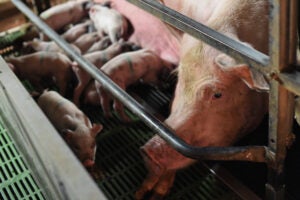
BRUSSELS—The European Commission released today the long-awaited results of its Eurobarometer survey on EU citizens’ attitudes towards animal welfare. As anticipated, the polling data confirms that the vast majority of Europeans (84%) believe that the welfare of farm animals should be better protected. Across all EU Member States, at least eight in ten respondents believe that ensuring that animals are not kept in individual cages is an important factor in meeting our ethical responsibilities to animals.
Dr Joanna Swabe, senior director of public affairs for Humane Society International/Europe, commented:
“The Eurobarometer results released today unequivocally confirm the incredible strength of citizen support in all Member States for the advancement of animal welfare. It was no secret that this poll had been conducted many months ago, but it was rumoured that the Commission leadership had been suppressing the results given their reluctance to adhere to the clear animal welfare commitments made in both the EU Farm to Fork Strategy and the formal response to the European Citizens’ Initiative to End the Cage Age.”
During a Parliamentary hearing earlier this month, Commission Vice-President Maroš Šefčovič, the new European Green Deal chief, broke the Commission’s silence on its failure to deliver the promised package of legislative proposals to revise and expand the scope of the existing body EU animal welfare legislation. Šefčovič signalled that all but the proposal on animal transport were being shelved for the foreseeable . The Eurobarometer provides a strong reminder before the EU elections that citizens care about animal welfare. The results of this survey emphasise the importance of Europe staying true to its commitment to eliminating caged farming.
“Ignoring the immense citizen support for improved animal welfare and the failure to honour the Commission’s commitments to deliver these legislative reforms is an affront to the millions of EU citizens who want better treatment of farm animals,” says Swabe. “With the European elections only months away, the Commission’s backsliding on animal welfare risks eroding ordinary citizens’ faith in the European institutions and how much they are truly working for them and their interests.”
Support for improved animal protection regulations does not come only from the general public. The Commission’s own regulatory fitness and performance programme which aims to ensure that EU laws deliver on their objectives, determined that the current animal welfare legislation is no longer fit for purpose. The European Food Safety Agency delivered scientific opinions regarding the on-farm welfare of animals, which make it clear that farm animals have complex welfare needs that cannot be met within the confines of cages and crates.
With respect to the welfare of animals on farms, the Eurobarometer survey results reveal, for example, that:
- 90% of Europeans consider that farming and breeding practices should meet basic ethical requirements.
- 91% consider that it is important to protect the welfare of farmed animals (e.g., pigs, cattle, poultry, etc.) to ensure that they have decent living conditions.
- 84% consider that in general the welfare of farmed animals in their country should be better protected than it is now
- 67% say they would like to have more information about the conditions in which farmed animals are raised in their country.
- Over eight in 10 respondents believe that ensuring that farmed animals have enough food and an adapted environment satisfying their basic needs (e.g., mud, straw, etc., depending on the species) is important in all 27 EU Member States.
- In all 27 EU Member States, more than eight in 10 respondents consider that providing farmed animals enough space to be able to move around, lie down and stand up is important.
- At least eight in 10 respondents in all 27 EU Member States consider that ensuring that people who handle the animals have sufficient skills and training is an important aspect of meeting our ethical responsibilities to animals.
- In all 27 EU Member States, over three-quarters of respondents think that banning the cutting of certain body parts of the animals unless it is necessary to protect the safety of workers/farmers (in which case anaesthesia will be used) is an important condition to meet our ethical responsibilities to animals.
- 75% think that the practice of killing one-day-old male baby chicks is unacceptable.
- Over six in 10 Europeans believe that EU animal welfare rules should apply to food imported from non-EU countries.
- Six in 10 Europeans are willing to pay more for products sourced from animal welfare-friendly farming systems. Six in 10 Europeans indicated that they look for labels identifying products sourced from animal welfare-friendly farming systems when buying food products.
Facts
- In 2020, the European Commission released its Farm to Fork strategy for a fair, healthy and environmentally friendly food system as part of its European Green Deal flagship policy package. This included a commitment to revise the existing animal welfare legislation to align it with the latest scientific evidence, broaden its scope, make it easier to enforce and ultimately ensure a higher level of animal welfare. The legislative package was due to be published in the third quarter of 2023.
- In 2021, in response to the European Citizens’ Initiative to End the Cage Age, which garnered nearly 1.4 million validated signatures, the Commission also promised to deliver proposals to end the caged confinement of animals kept for food by the end of 2023.
- The Eurobarometer is the official polling instrument that is used by the European Commission, the European Parliament and other EU institutions and agencies to monitor public opinion on EU issues and attitudes towards specific subjects.
- Prior to today’s publication, Special Eurobarometer report 442 on Attitudes of Europeans towards Animal Welfare was the most recent EU-wide survey on this issue and was published in 2016. At that time, more than nine in 10 EU respondents said they believed that it is important to protect the welfare of farmed animals (94%).
ENDS
Media contact: Yavor Gechev, communications director for HSI/Europe: ygechev@hsi.org ; +359889468098 ; +393515266629
Humane Society International / Europe
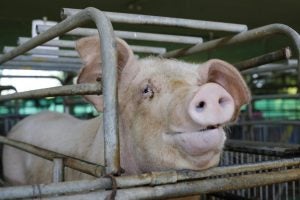
BRUSSELS—After months of waiting for the European Commission to honour its European Green Deal commitment to deliver a package of legislative proposals to upgrade the EU’s animal welfare legislation, Executive Vice President Maroš Šefčovič finally broke the EU executive body’s silence on this issue during the Parliamentary hearing for his appointment as the new Green Deal czar.
In response to probing questions on animal welfare from several Members of the European Parliament from across the political spectrum, Šefčovič dashed EU citizens’ hopes of the Von der Leyen Commission adopting legislative proposals to end the caged confinement of farm animals in the EU this year. While claiming to be committed to the animal welfare file, he hid behind its ‘complexity’ as an excuse for failure for its delivery. Šefčovič’s only olive branch to animal advocates was a promise to come up with a proposal on live animal transport by December 2023.
Dr Joanna Swabe, senior director of public affairs for Humane Society International/Europe, issued the following statement in response to Šefčovič’s comments:
“We were promised action to end cruel caged confinement, but turns out to have all been hot air. Despite being grilled by several MEPs, during his hearing Commissioner Šefčovič largely skirted around the issue of animal welfare and failed to provide any clear timeline with respect to when, or even if, the European Commission would deliver its promised ban on caged farming. The announced legislative proposal on animal transport is good news, but alone, it falls short of the commitments made in the Farm to Fork Strategy and the Commission’s promise to the 1.4 million European citizens backing the ‘End the Cage Age’ European Citizen’s Initiative.
The science is clear, it is time to stop confining millions of sentient animals in cages and crates so small they cannot turn around or take more than a single step forward. A slew of scientific opinions delivered by EFSA, the European Union’s science advisory agency focused on food chain risks, confirm that the current animal welfare legislation needs to be brought in line with new scientific understanding on animal welfare. This legislation has already been deemed no longer fit for purpose under the Commission’s own regulatory fitness and performance programme that aims to ensure that EU laws deliver on their objectives. Moreover, the Regulatory Scrutiny Board has issued a positive opinion about the draft impact assessment accompanying the legislative proposals, which have already been drafted by Commission staff. The announced additional discussion on animal welfare in the context of the strategic dialogue with farmers is a poor attempt to dissolve concerns after recent reports that the EU could drop its plan to get farmed animals out of cages. The Commission already has a Platform on Animal Welfare that involves all relevant stakeholders. Let us not forget that ahead of the 2024 EU elections, it would be an affront to EU citizens and participatory democracy if the Commission failed to deliver on both its ECI and Green Deal promises to raise animal welfare standards. Humane Society International, allied groups and EU citizens will not give up. We will be pushing Šefčovič and his colleagues to deliver all the legislative proposals before the end of their mandate”.
ENDS
Media contact: Cassie Bodin-Duval, international coordinator for media relations: cbodinduval@hsi.org ; +32 (0) 469 149 469
Humane Society International says Minister’s dismissal of animal cruelty is ‘inexplicable’
Humane Society International / Europe
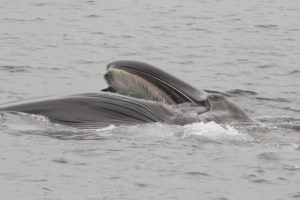
BRUSSELS—As news breaks that Iceland will allow the resumption of commercial whaling with the introduction of so-called “improvements”, despite clear evidence of immense animal suffering, global animal protection charity Humane Society International calls it a devastating and inexplicable decision.
Food, Agriculture and Fisheries Minister Svandís Svavarsdóttir issued the decision today to resume whaling on the advice from a working group that improvements could be made to the hunting methods used. Her announcement comes despite the suspension of whaling in June this year after publication of an independent report by the Icelandic Food and Veterinary Authority which revealed some whales killed in Icelandic hunts had taken up to two hours to die, with 41% of whales suffering immensely before dying for an average of 11.5 minutes. At the time, the Minister declared concerns that whale killing methods contravened the country’s Animal Welfare Act.
Ruud Tombrock, HSI/Europe’s executive director, said: “It is inexplicable that Minister Svavarsdóttir has dismissed the unequivocal scientific evidence that she herself commissioned, demonstrating the brutality and cruelty of commercial whale killing. There is simply no way to make harpooning whales at sea anything other than cruel and bloody, and no amount of modifications will change that. Whales already face myriad threats in the oceans from pollution, climate change, entanglement in fish nets and ship strikes, and fin whale victims of Iceland’s whaling fleet are considered globally vulnerable to extinction. With the need for whale protection so critical. this is a devastating rejection of a once-in-a-generation opportunity to end the slaughter at sea. There is a new shameful entry in the conservation history books―Iceland had a chance to do the right thing and it chose not to.”
Fast facts:
- The International Whaling Commission agreed to enact a global moratorium on all commercial whaling in 1986.
- Iceland left the IWC in 1992 but returned in 2002 with an exception to the moratorium, despite objections from multiple nations. Since re-joining the IWC, Iceland had killed more than 1,500 whales, including fin whales.
- Iceland suspended hunting fin whales in 2016 due to a declining market for whale meat in Japan. Hunting resumed for the 2018 season when 146 fin whales were killed, including a pregnant female and a rare fin-blue hybrid whale, plus six minke whales. Icelandic whalers killed a single minke whale between 2019 and 2021, and 148 fin whales in 2022.
- Fin whales are classified by the International Union for the Conservation of Nature as globally vulnerable to extinction despite decades of recovery since the commercial whaling moratorium.
ENDS
Media contact: Wendy Higgins, director of international media: whiggins@hsi.org
